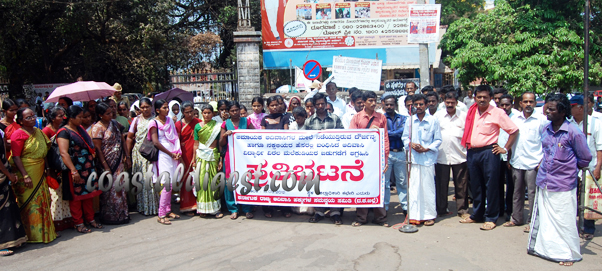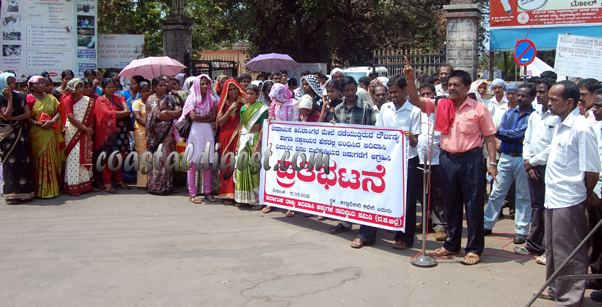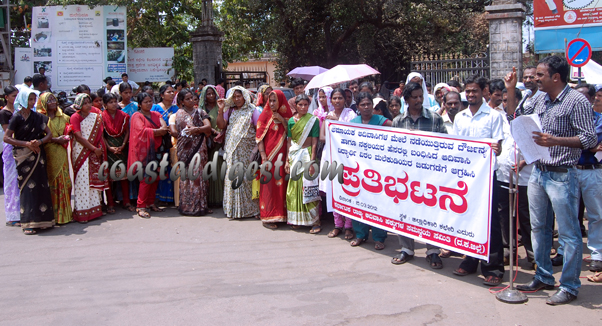Vittala was taken into custody for allegedly supporting the Naxal activities in Belthangady area. Police are claiming that a book of Bhagath Singh was found with Vittala which they say he used to spread naxalism. The police custody of Vittala was extended by five more days by the Belthangady court on Wwednesday.
Vittala was arrested over a week ago after he had gone to visit his father, who had earlier been taken into custody by the police.
Speaking on the occasion, B Madhava, secretary DK District unit of CPI(M) said, the arrest of the student was a ploy to diver the attention of the people at a time when the ruling BJP was reeling under scams.
“Possessing a book on Bhagath Singh cannot be construed as Vittala was supportive of Naxals. The arrest raises a question mark about whether democracy was still alive,” he said.
Denouncing the arrest, B M Bhat, president of Dakshina Kannada District Beedi Worker's Association ridiculed the police for making paper clippings of various newspapers like Udayavani, Prajavani, Vijaya Karnataka a basis for suspecting Vittala's link with Naxals. “This kind of atrocities must stop immediately. By merely keeping books of freedom fighters one does not become a naxal,” he said.
The protesters also expressed outrage on police atrocities committed on Vittala's father Lingappa Malekudiya. “About two months ago the Anti-Naxal Force killed their own personnel and tried to hoodwink people. Now they have come up with stories about Vittala, Mr. Bhat said.
The Adivasi Samanvaya Samiti demanded immediate release of Vittala to safeguard his future.












Comments
Add new comment